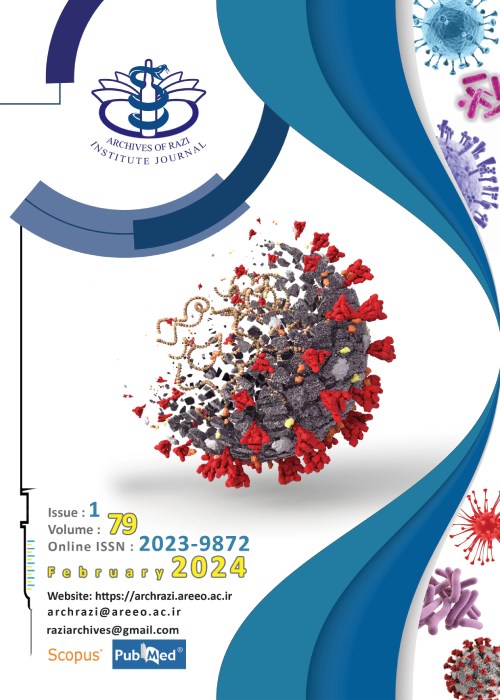Immunity Evaluation of an experimental designed nanoliposomal vaccine containing FMDV immunodominant peptides
Foot-and-mouth disease (FMD) is a highly contagious viral disease affecting cloven-hoofed animals. The particular virus causing FMD disease is called FMD virus and is a member of the Aphthovirus genus in the Picornaviridae family. The FMD virus has an 8500 nt long single strain positive RNA genome with one open reading frame (ORF) trapped in an icosahedral capsid protein. This virus genome doesn’t have proofreading property which leads to high mutagenesis. It has seven serotypes, including O, A, ASIA, SAT1, SAT2, and C serotypes, as well as many subtypes. Iran is an endemic region for foot-and-mouth disease. Vaccination of susceptible animals with an inactivated whole-virus vaccine is the only way to control the epidemic in many developing countries. Today, conventionally attenuated and killed virus vaccines are being used worldwide. In Iran, animals have been vaccinated every 105 days with an inactivated FMD vaccine. Although commercially available FMD vaccines are effective, they provide short-term immunity requiring regular boosters. A new FMD vaccine is needed to improve immunization, safety, and long-term immune responses. A synthetic peptide vaccine is one of the safe and important vaccines. Peptide vaccine has low immunogenicity, requiring strong adjuvants. Nanoliposomes can be used as new adjuvants to improve immune response. In the current study, nanoliposomal carriers were selected using Dimyristoylphosphatidylcholine (DMPC), dimyristoyl phosphoglycerol (DMPG), and Cholesterol (Chol) as an adjuvant containing two immunodominant synthetic FMDV peptides. The liposomal formulations were characterized by various physicochemical properties. The size, zeta potential, and encapsulation efficiency were optimized, and the obtained nanoliposome was suitable as a vaccine. The efficacy of vaccines has been evaluated in guinea pigs as animal models. Indirect ELISA was used to detect FMDV-specific IgG. The obtained results indicated that although antibody titer was observed, the amount was lower compared to the groups that received inactivated virus-containing liposomes. In addition, the results showed that liposome was an appropriate adjuvant, compared to other adjuvants, such as Alum and Freund, and can act as a depot and induce an immune response.
- حق عضویت دریافتی صرف حمایت از نشریات عضو و نگهداری، تکمیل و توسعه مگیران میشود.
- پرداخت حق اشتراک و دانلود مقالات اجازه بازنشر آن در سایر رسانههای چاپی و دیجیتال را به کاربر نمیدهد.


